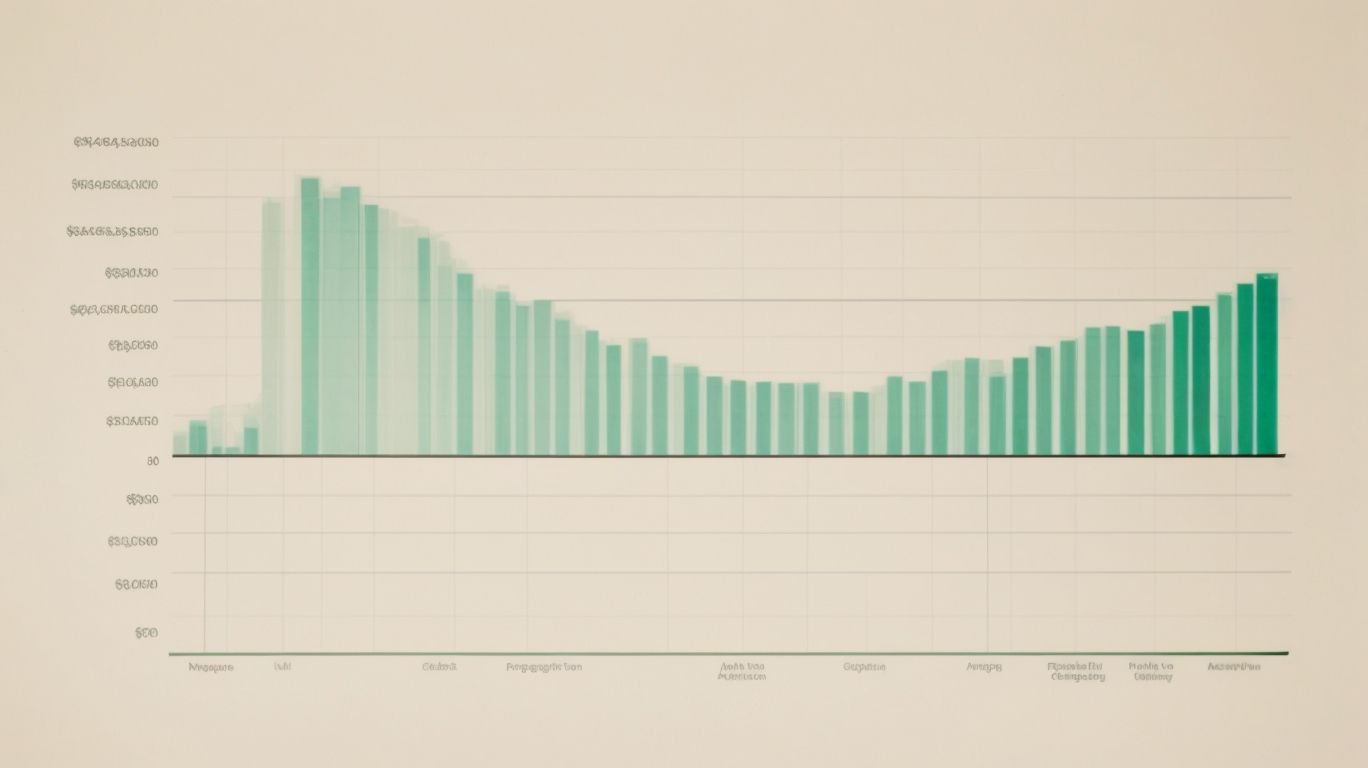Are you interested in pursuing a career in counseling psychology? Wondering what you can do with a Masters in Counseling Psychology and what the average salary is for professionals in this field? Look no further!
In this article, we will explore the various career paths available to individuals with a Masters in Counseling Psychology, as well as the average salaries for different roles within the field. We will discuss the job growth projections for those with a Masters in Counseling Psychology. Whether you’re considering a career change or are just starting out in the field, this article has got you covered.
Contents
- 1 Key Takeaways:
- 2 What Is Counseling Psychology?
- 3 What Is a Masters in Counseling Psychology?
- 4 What Can You Do with a Masters in Counseling Psychology?
- 5 What Is the Average Salary for Someone with a Masters in Counseling Psychology?
- 6 What Are the Job Growth Projections for Someone with a Masters in Counseling Psychology?
- 7 Frequently Asked Questions
- 7.1 What is the average salary for someone with a Masters in Counseling Psychology?
- 7.2 What types of jobs can I pursue with a Masters in Counseling Psychology?
- 7.3 Is there a high demand for individuals with a Masters in Counseling Psychology?
- 7.4 In which industries can I find job opportunities with a Masters in Counseling Psychology?
- 7.5 Do individuals with a Masters in Counseling Psychology have the potential to earn a higher salary over time?
- 7.6 Are there any additional factors that can impact earning potential with a Masters in Counseling Psychology?
Key Takeaways:
What Is Counseling Psychology?
Counseling psychology involves the application of psychological principles to address various mental health issues, offering therapeutic support to individuals, families, and diverse communities.
This field focuses on providing give the power toment and understanding to help clients navigate emotional challenges, relationship difficulties, and mental health disorders.
Counseling psychologists utilize a range of therapeutic approaches, such as cognitive-behavioral therapy, interpersonal therapy, and psychodynamic therapy, tailored to meet the unique needs of each individual.
Counseling psychologists undergo rigorous education and clinical training to equip themselves with the expertise to conduct assessments, provide interventions, and promote mental well-being.
What Is a Masters in Counseling Psychology?
A Master’s in Counseling Psychology equips individuals with advanced knowledge and specialized skills to pursue a career in the clinical counseling field, enabling them to address diverse mental health needs with expertise and empathy.
Students pursuing this advanced degree delve into a comprehensive curriculum that covers various theoretical perspectives, research methods, and ethical practices. They have the opportunity to specialize in areas such as child and adolescent counseling, marriage and family therapy, or substance abuse counseling.
The clinical training component is a crucial aspect of the program, providing students with hands-on experience through internships, supervised practicum, and fieldwork. Earning a Master’s in Counseling Psychology not only enhances career prospects but also allows individuals to make a meaningful impact in the lives of others through professional counseling.
What Can You Do with a Masters in Counseling Psychology?
With a Master’s in Counseling Psychology, individuals can embark on a rewarding career path, engaging in private practice, working with diverse clients and communities, and pursuing opportunities for professional growth and advancement.
Private practice offers the possibility of autonomy and independence, allowing counselors to develop their unique treatment approaches and serve a broad spectrum of individuals. By engaging with diverse clients and communities, counselors can gain valuable cultural insights and contribute to the well-being of various populations. This exposure enhances their skills and understanding of the human experience.
Pursuing opportunities for professional growth and advancement might include obtaining certifications, attending further specialized training, or leading workshops and conferences that contribute to the evolution of the counseling psychology field.
Become a Licensed Professional Counselor
After completing a Master’s in Counseling Psychology, individuals can pursue licensure as a Licensed Professional Counselor, enabling them to provide expert counseling services, operate in private practice, and achieve a fulfilling career in mental health support and guidance.
Obtaining a Master’s degree in Counseling Psychology is the first step towards becoming a Licensed Professional Counselor. This degree typically involves coursework in counseling theories, psychological assessment, and clinical practice, along with a supervised internship or practicum.
Subsequently, aspiring counselors must fulfill the licensure requirements mandated by the state they wish to practice in. This often involves accumulating a certain number of supervised clinical hours and passing a licensure exam, such as the National Counselor Examination (NCE) or the National Clinical Mental Health Counselor Examination (NCMHCE).
Once licensed, counselors can choose to establish their private practice, where they can provide individual or group counseling, marriage and family therapy, and other specialized services. Many find this autonomy and independence invigorating, as it allows them to tailor their practice to fit their expertise and the needs of their clients.
Work in a Mental Health Facility
Graduates with a Master’s in Counseling Psychology can seek employment in mental health facilities, offering their expertise in therapeutic interventions, behavioral health support, and substance abuse counseling, contributing to the well-being of individuals in need.
Working in mental health facilities allows professionals to play a crucial role in enhancing the quality of life for those experiencing mental health challenges.
The job opportunities for individuals with a Master’s in Counseling Psychology are diverse, including positions such as mental health counselors, licensed professional counselors, and psychotherapists. These roles involve providing one-on-one counseling sessions, facilitating group therapy, and conducting assessments to develop personalized treatment plans.
Employment in these settings also presents the possibility of earning a competitive salary, with the potential for increased remuneration as experience and clinical training progress.
Clinical training equips professionals with the skills necessary to address complex mental health issues, enabling them to provide comprehensive support tailored to each individual’s specific needs. This training often includes clinical placements, supervised practice, and exposure to diverse therapeutic modalities, equipping graduates with the ability to offer a wide range of services within mental health facilities.
Pursue a Career in Research
Individuals with a Master’s in Counseling Psychology can pursue a career in research, contributing to the advancement of knowledge in mental health, therapeutic interventions, and psychological well-being through rigorous academic inquiry and empirical studies.
Engaging in research within the field of counseling psychology provides professionals with a platform to make substantial academic contributions that can significantly impact the industry.
Research opportunities often allow individuals to explore innovative therapeutic approaches, develop and validate assessment tools, and contribute to evidence-based practices.
The relevance of clinical training cannot be overstated, as it equips researchers with hands-on experience and a deep understanding of client needs and common challenges.
Integrating these insights into research endeavors ensures that the studies conducted are meaningful and practical, ultimately benefiting the larger community of practitioners and clients.
Work in Higher Education
A Master’s in Counseling Psychology can open doors to working in higher education, where individuals can contribute to the training and development of future counselors, shaping the next generation of mental health professionals through academic instruction and mentorship.
Professionals with a Master’s in Counseling Psychology have various career opportunities within higher education. They can work as faculty members, academic advisors, or program directors in psychology or counseling departments. Additionally, they can conduct research, publish scholarly articles, and participate in conferences to contribute to the field’s knowledge. Collaborating with organizations like the American Psychological Association or the American Counseling Association can also expand their professional network and advance the field.
What Is the Average Salary for Someone with a Masters in Counseling Psychology?
The average salary for individuals with a Master’s in Counseling Psychology can vary based on factors such as geographical location, area of specialty, and the level of education and clinical training, as reported by relevant labor and employment statistics.
Geographical location plays a significant role in determining the average salary for those with a Master’s in Counseling Psychology. For instance, professionals working in metropolitan areas or regions with higher costs of living tend to command higher salaries compared to those in rural or less populated areas.
The demand for counseling psychologists in a particular location can influence salary levels, as areas with a higher demand for mental health services may offer greater monetary compensation.
The area of specialty within counseling psychology can impact salary levels. Professionals specializing in areas such as substance abuse counseling, marriage and family therapy, or clinical mental health counseling may experience variations in their earnings. Those with specialized expertise or certifications in areas like trauma counseling or forensic psychology might also command higher salaries due to the specialized nature of their work.
The level of education and clinical training attained by a counseling psychologist can also play a pivotal role in determining their salary. Those with advanced training, such as obtaining a doctoral degree or pursuing additional certifications, may qualify for higher-paying positions in academia, research, or clinical practice.
Clinical experience and specialized training can enhance one’s qualifications, potentially leading to increased earning potential.
Factors That Affect Salary
Several factors contribute to the variation in salary for individuals with a Master’s in Counseling Psychology, including geographical location, areas of specialization, and the overall demand and growth projections within the field, as observed in national labor and employment data.
Geographical location plays a pivotal role in determining the earning potential of counseling psychologists. Urban areas, especially metropolitan cities, tend to offer higher salaries due to the cost of living and demand for specialized counseling services.
On the other hand, rural regions may have lower average salaries. Specialization also significantly impacts earnings. Marriage and Family Therapy, Substance Abuse Counseling, and Mental Health Counseling are areas currently experiencing high demand, resulting in better remuneration for professionals specializing in these fields.
The overall growth projections within the field also influence salaries, with increased demand for mental health services contributing to higher earning potential for counseling psychologists.
Average Salary for Licensed Professional Counselors
Licensed Professional Counselors with a Master’s in Counseling Psychology can expect to earn a competitive salary, reflective of their level of education, clinical training, and the potential for advancement within the counseling profession.
The average salary of a Licensed Professional Counselor (LPC) with a Master’s in Counseling Psychology is influenced by various factors, including geographical location, years of experience, and specialized certifications.
In the United States, according to the Bureau of Labor Statistics, the median annual wage for mental health counselors, including LPCs, was around $46,050 as of May 2020. This figure can vary significantly based on specific factors such as the industry of employment, with government agencies generally offering higher salary opportunities compared to individual and family services.
An LPC’s clinical experience and practical application of counseling skills play a crucial role in salary determination. Those with established counseling experience or specialized expertise in areas such as trauma counseling, substance abuse treatment, or family therapy may command higher compensation due to the demand for these specific skills in the job market.
Opportunities for professional growth and advancement, such as pursuing further education, obtaining additional certifications, or transitioning into leadership or supervisory roles within counseling organizations, can significantly impact an LPC’s earning potential. Advanced degrees, professional development, and leadership positions can all contribute to a higher salary range, demonstrating the importance of ongoing education and skill development in the counseling profession.
Average Salary for Mental Health Counselors
Mental Health Counselors holding a Master’s in Counseling Psychology can anticipate a promising salary outlook, indicative of their clinical training, expertise in addressing mental health concerns, and the demand for their specialized services.
Mental Health Counselors are highly educated and trained professionals, making them well-suited to earn competitive salaries. Their expertise in diagnosing and treating mental health conditions, as well as their ability to provide effective therapeutic interventions, adds value to their services. As a result, the average annual salary for Mental Health Counselors is expected to reflect their qualifications and the increasing need for mental health support. Additionally, their potential for career advancement and job security contribute to a positive salary outlook.
Average Salary for Research Psychologists
Research Psychologists with a Master’s in Counseling Psychology can pursue rewarding career paths with competitive average salaries, driven by their advanced education, contributions to empirical research, and their affiliation with reputable psychological associations and institutions.
A Research Psychologist with a Master’s in Counseling Psychology typically earns an average salary range of $60,000 to $90,000 per year. This can vary depending on factors such as geographic location, experience, and industry. Those with a Ph.D. or Psy.D. in Counseling Psychology may command higher salaries, often ranging from $80,000 to $120,000 annually.
Professionals who engage in pioneering research and publish impactful papers in esteemed academic journals can leverage their contributions to negotiate salaries above the average range. Becoming a member of esteemed organizations such as the American Psychological Association or the Society of Counseling Psychology not only provides networking opportunities but also demonstrates a commitment to upholding the highest professional standards. This can positively influence salary offers and advancement opportunities.
Average Salary for Higher Education Counselors
Higher Education Counselors equipped with a Master’s in Counseling Psychology can access fulfilling career opportunities with favorable average salaries, shaped by their academic expertise, mentorship roles, and their association with esteemed counselor education and supervision organizations.
Education counselors with a Master’s in Counseling Psychology often have the potential to earn above-average salaries due to their specialized knowledge and skills in counseling techniques and psychological assessment. These skills are highly valued in academic settings, making them in demand.
Additionally, their mentorship contributions to students and involvement in professional affiliations, such as the American Counseling Association and the American College Personnel Association, can further enhance their earning potential. These affiliations often offer networking opportunities and access to resources that can positively impact career growth and salary prospects.
What Are the Job Growth Projections for Someone with a Masters in Counseling Psychology?
Individuals with a Master’s in Counseling Psychology can anticipate robust job growth and diverse career advancement opportunities, driven by the increasing demand for mental health services, the evolving focus on mental well-being in various settings, and the potential for thriving in private practice.
With a significant projected job growth rate within the field of counseling psychology, individuals holding a Master’s degree in this discipline are well-positioned to capitalize on the growing need for mental health professionals.
The expansion of mental health initiatives across education, healthcare, and community organizations opens numerous career pathways for these professionals. Whether specializing in child and adolescent counseling, substance abuse treatment, or marriage and family therapy, professionals can find meaningful work in settings such as schools, hospitals, and social service agencies.
The trend towards integrating mental health services into primary care settings increases the demand for counselors in collaborative healthcare models. This creates opportunities for professionals to engage in interprofessional practice, offering integrated care for individuals with mental health needs.
The autonomy and flexibility of private practice attract many counselors who seek to establish their own independent counseling services, providing personalized treatment to clients and contributing to the diversity of mental health care providers in the community.
Growing Demand for Mental Health Services
The growing demand for mental health services presents promising career prospects for individuals with a Master’s in Counseling Psychology, as evidenced by statistical trends, community initiatives, and the increasing recognition of mental well-being as a priority in healthcare and societal contexts.
According to recent studies, the demand for mental health services has been on the rise, with an increasing number of individuals seeking professional help to address their mental well-being.
In fact, statistical evidence indicates that the prevalence of mental health conditions has surged in recent years, underscoring the need for qualified professionals in the field.
Community initiatives and advocacy efforts have also bolstered the demand for mental health services, raising awareness and reducing stigma associated with seeking help for mental health concerns.
This shift in societal attitudes has paved the way for a more open dialogue about mental well-being, emphasizing its significance as a crucial component of overall health.
Increased Focus on Mental Health in Schools and Organizations
Schools and organizations are placing a heightened focus on mental health, creating diverse employment opportunities for individuals with a Master’s in Counseling Psychology, aligning with public health data, community support initiatives, and the integration of mental health professionals in various organizational contexts.
This increased emphasis on mental health within educational institutions and workplaces is in response to a growing recognition of the impact of emotional well-being on overall productivity and quality of life. Public health data has underscored the prevalence of mental health challenges, prompting proactive measures to address these concerns.
Community initiatives, such as mental health awareness campaigns and support groups, are impactful in fostering supportive environments and reducing stigma around seeking help.
The integration of counseling professionals in diverse organizational settings has become an integral aspect of maintaining a psychologically safe and healthy workplace. Whether it’s in educational settings, corporate environments, or non-profit organizations, the presence of trained counselors offers essential support for individuals navigating personal and professional challenges.
Opportunities in Private Practice
Individuals with a Master’s in Counseling Psychology can pursue fulfilling careers in private practice, offering specialized therapeutic interventions, addressing diverse mental health challenges, and achieving personal and professional growth through successful private practices.
Private practice provides counseling psychologists with the autonomy to tailor their therapeutic approaches to individual clients’ needs, promoting a more personalized and comprehensive treatment experience.
Establishing a successful private practice allows professionals to cultivate a strong network of mental health support, collaborating with other specialists and leveraging a multidisciplinary approach to enhance patient care and wellness.
The benefits of operating a thriving private practice extend beyond clinical outcomes, encompassing financial stability, flexibility, and the opportunity to cultivate a strong community presence.
Frequently Asked Questions
What is the average salary for someone with a Masters in Counseling Psychology?
The average salary for someone with a Masters in Counseling Psychology can vary greatly depending on location, experience, and type of job. However, on average, individuals with this degree can expect to earn between $40,000 and $70,000 per year.
What types of jobs can I pursue with a Masters in Counseling Psychology?
Graduates with a Masters in Counseling Psychology can pursue a variety of careers in the mental health field. Some common job titles include licensed professional counselor, school counselor, marriage and family therapist, and clinical mental health counselor.
Is there a high demand for individuals with a Masters in Counseling Psychology?
Yes, there is a high demand for individuals with a Masters in Counseling Psychology. As mental health awareness and resources continue to increase, the need for qualified counselors is also growing. This degree can open up many job opportunities in a variety of settings.
In which industries can I find job opportunities with a Masters in Counseling Psychology?
Individuals with a Masters in Counseling Psychology can find job opportunities in a variety of industries, including healthcare, education, government agencies, non-profit organizations, and private practice. These industries often have a need for qualified counselors to support and assist individuals with mental health concerns.
Do individuals with a Masters in Counseling Psychology have the potential to earn a higher salary over time?
Yes, individuals with a Masters in Counseling Psychology have the potential to earn a higher salary over time. As they gain experience and advance in their careers, they may have the opportunity to take on leadership roles or open their own private practice, which can lead to higher earning potential.
Are there any additional factors that can impact earning potential with a Masters in Counseling Psychology?
Yes, there are several factors that can impact earning potential with a Masters in Counseling Psychology. These can include location, additional certifications or specializations, and type of industry or organization. It is important for individuals to research and consider these factors when exploring job opportunities and negotiating salary.





